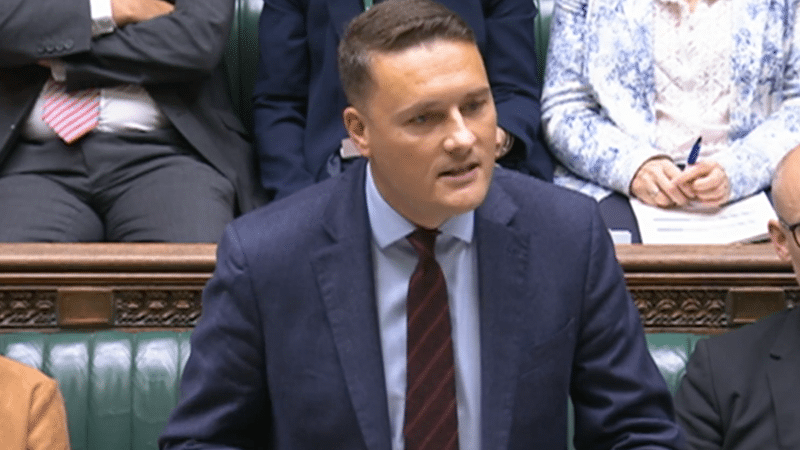Legalising assisted suicide is fraught with practical difficulties, Health Secretary Wes Streeting has admitted.
Speaking at the Financial Times’ Weekend Festival in London on Saturday, Streeting suggested a change in the law could increase the risk of vulnerable adults being coerced into ending their lives.
The Prime Minister has already pledged to afford MPs the opportunity to consider axing end-of-life protections for the vulnerable under a private members’ Bill.
Dilemmas
In a wide-ranging discussion on the challenges facing the NHS with Robert Shrimsley, the FT UK chief political commentator, Streeting admitted to being “conflicted” on assisted suicide.
He said that beyond the difficult philosophical and ethical questions raised by the issue “are a whole series of practical ones about which I am deeply uncomfortable”.
He explained: “How do you make sure that people aren’t coerced into exercising their right to die, if it were available? I don’t just mean direct coercion and inducement. The burden of guilt – what one might feel about being a burden on their families, even if their families didn’t even remotely feel like they were a burden.”
The Health Secretary also feared that vulnerable patients may feel “coerced” into assisted suicide through a lack of palliative care support.
Disquiet
In a poll published earlier this year, more than four in ten Brits who support assisted suicide signalled serious doubts about its safety.
The survey of 2,001 British adults by Whitestone Insight, on behalf of think-tank Living & Dying Well, showed that 42 per cent of those in favour of changing the law admitted there are “too many complicating factors to make it a practical and safe option”.
Living & Dying Well said the poll “pushes back against the narrative frequently promoted by those who say the public support a change in the law and highlights the serious concerns” of ordinary people that must be considered by Parliamentarians.
The group highlighted that the public becomes “increasingly suspicious” of assisted suicide as “disturbing evidence emerges from places like Canada”, where people who cannot access the care they need have been approved for euthanasia.
Westminster
The House of Lords is expected to debate legalising assisted suicide over the coming months after Lord Falconer of Thoroton introduced his Assisted Dying for Terminally Ill Adults Bill in July.
Labour backbench MP Jake Richards has also announced his intention to introduce similar proposals to the House of Commons after coming eleventh in the Private Members’ Bill Ballot.
The most recent legislation on assisted suicide to be voted on in Westminster was defeated by 330 to 118.

